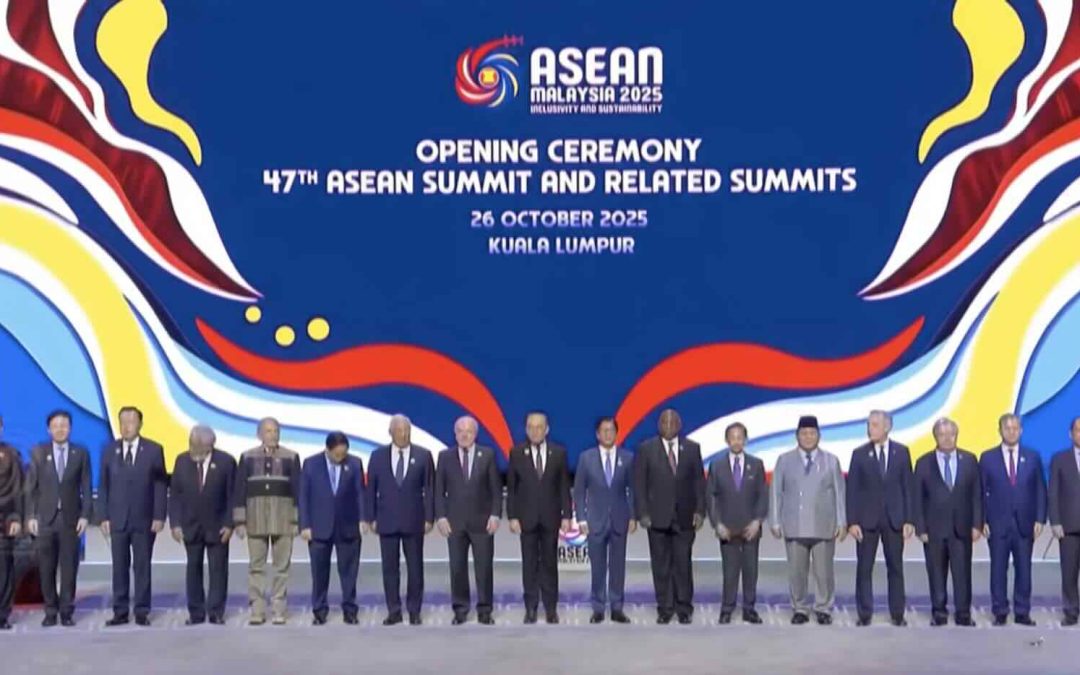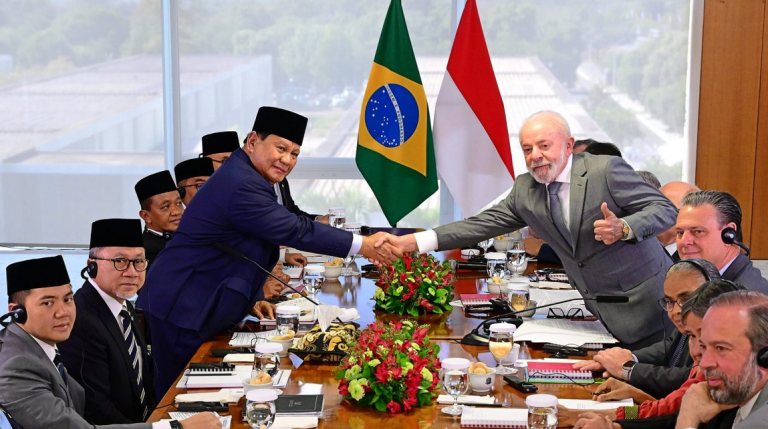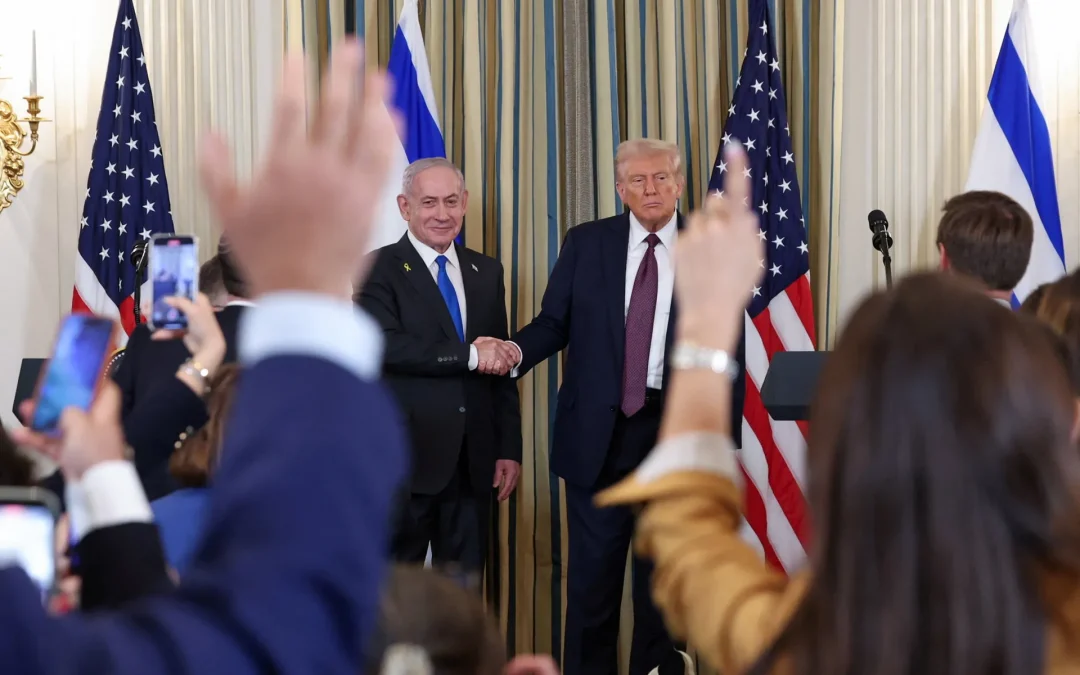The presence of President Prabowo at the 17th BRICS Summit in Rio de Janeiro, Brazil, was an important moment for Indonesia to take a real role in the international arena. Indonesia joined BRICS in early January 2025 and hopes to benefit from the forum, which in recent years has begun to exert political influence at the international level. The BRICS Summit was held on July 6-7, 2025, under Brazil’s chairmanship.
Indonesia sees the great potential of BRICS and is eager to take part in BRICS cooperation. Moreover, BRICS membership reflects the slogan that Indonesia has always championed: enhancing South-South cooperation. The theme raised by Brazil is “Strengthening Global South Cooperation for More Inclusive and Sustainable Governance.” This theme aligns with Indonesia’s vision, which has played a significant role in promoting South-South cooperation since 1955. The question is: Can BRICS truly fulfill Indonesia’s expectations and those of other Southern nations? There appears to be skepticism about BRICS’ ability to realize the aspirations of many countries. There are even significant concerns, which are well-founded, as the BRICS Summit faces internal challenges that are far more significant and difficult to resolve before the forum, which claims to represent the Global South, can become a force.
Focus and Achievements of the Brazilian Presidency
The Brazilian Presidency focuses on two main priorities: Global South Cooperation and BRICS Partnership in Social, Economic, and Environmental Development. Brazil has proposed six key areas of cooperation among BRICS countries: Global Health Cooperation; Trade, Investment, and Financial Cooperation; Climate Change and Artificial Intelligence (AI) Governance; Multilateral Peace and Security Architecture; and Institutional Development.
A series of ministerial and Sherpa-level meetings have been held to prepare agreements at the Leaders’ Summit level. In early June 2025, BRICS Health Ministers agreed on a declaration establishing a Partnership to Address Socially Determined Diseases (Eliminate Socially Determined Diseases).
BRICS Ministers of Science, Technology, and Innovation also met to discuss strengthening access to and control over technology and innovation in Global South countries. Access to and control over such technology have long been dominated by Global North countries.
At the end of May 2025, BRICS Environment Ministers agreed on a roadmap document related to environmental financing cooperation, including reform of multilateral development banks, greater concessional financing, capital mobilization, and regulations to ensure that financial flows reach developing countries. The environment ministers also adopted a declaration emphasizing the importance of environmental multilateralism and strengthening balanced and inclusive global governance to achieve shared goals in protecting flora and fauna.
Three Sherpa meetings were also held to build important agreements. The first Sherpa meeting was held in Brasilia in February 2025 and agreed on the main topics on Brazil’s agenda. The agreement included a review of the Strategic Partnership in the economic field with the renewal of the five-year plan initiated by Brazil. The second Sherpa meeting was held in April 2025 in Rio de Janeiro, resulting in a consensus on the need for the New Development Bank (NDB) to act as the primary financing agency for industrialization in Global South countries.
The third Sherpa meeting was held from June 30 to July 4, 2025, to prepare for the agreements to be declared at the 17th BRICS Summit. The topics discussed among the Sherpas were health, artificial intelligence, and climate change, which had been discussed at previous BRICS Ministerial meetings. The Sherpas are expected to formulate concrete solutions to the structural challenges faced by Global South countries.
Failure to Build Solidarity
There are very high expectations for the role of BRICS amid the current global uncertainty. Multilateralism faces serious challenges with the emergence of various unilateral initiatives by President Donald Trump that exacerbate global uncertainty. Among these initiatives are policies to increase tariffs on commodities entering the US market and attacks on three Iranian nuclear sites.
However, BRICS itself faces internal challenges that are not easy to resolve immediately. Doubts about the effectiveness of BRICS arose when the South China Morning Post published an article titled “Questions loom at BRICS Rio summit about group’s effectiveness” on July 3, 2025. The article highlighted the effectiveness of BRICS as the voice of the Global South and a counterweight to the coalition of developed countries led by the United States.
The question is whether BRICS leaders can build a solid force that can counter Trump’s efforts to reshape the current global economic order. The evidence seems to suggest that it will be difficult for BRICS to build the strong solidarity needed to play the role that many Southern countries expect.
In April 2025, BRICS foreign ministers failed to agree on a joint communiqué due to disagreements over a clause regarding support for Brazil, India, and South Africa to obtain permanent seats on the United Nations Security Council (UNSC).
BRICS countries also differed in their stance on the US and Israeli attacks on Iran. Brazil, India, and South Africa condemned the attacks, while the new members took a softer stance, calling the attacks a violation of international law.
Xi Jinping’s absence from the BRICS summit in Brazil
Doubts about BRICS’ ability to build solidarity grew stronger with the absence of a number of BRICS leaders from the 17th BRICS summit. Ideally, if BRICS countries see the importance of BRICS’ strategic role, they should prioritize attending the annual BRICS meeting.
President Xi Jinping, as the key leader of BRICS, has stated that he will not attend the Brazil Summit, as confirmed by the Chinese Foreign Minister in a press briefing on July 2, 2025. Instead, Prime Minister Li Qiang will replace the Chinese leader, whose global influence has been taken into account by the United States. Speculation about the reasons for the Chinese president’s absence has emerged, including domestic pressure related to trade negotiations with the US, slowing consumption, and a prolonged property crisis in China. It has also been said that the absence was due to a scheduling conflict with other commitments, in addition to the fact that Xi Jinping has already met with the Brazilian president twice.
Regardless of the reason, Xi Jinping’s absence has diminished the influence of BRICS amid global uncertainty. China’s economy contributes significantly to the economies of the BRICS countries. China is also seen as having significant political influence, making its position on international political issues a factor that the US and its traditional allies must consider.
A number of other leaders were also absent from the summit. President Vladimir Putin will appear online and send Foreign Minister Sergey Lavrov as his representative to the summit. Speculation suggests that their absence is due to the International Criminal Court’s decision to arrest Russian leaders for crimes against humanity. Brazil is a signatory to the ICC convention and is obliged to arrest Putin if he enters Brazilian territory.
Egyptian President Abdel-Fattah el-Sisi has also canceled his plans to attend the BRICS summit in Brazil due to ongoing tensions in the Middle East. Iran will send a delegation led by President Masoud Pezeshkian. Turkey and Mexico, invited as special guests, will send delegations led by their respective foreign ministers.
Although the reasons for each leader’s absence are understandable, their absence shows that BRICS does not seem to be a top priority for some BRICS members themselves. In this context, skepticism has arisen about BRICS’ ability to play a balancing role against global powers such as the US and the G7.
The role of India and Indonesia?
The remaining hope rests on the leadership of India and Brazil as long-standing members and Indonesia as a new member. A breakthrough is needed to revive the idea of BRICS as an alternative force amid the continuing dominance of the Global North and the futility of the global multilateral order.
As the chair of BRICS, Brazil has taken the initiative to revive the spirit of the Global South, as reflected in the theme of BRICS 2025 and the focus areas of cooperation. As a pioneer of South-South cooperation since 1954 and a long-standing member of BRICS, India, whose economy has seen significant progress, is expected to bring innovative ideas to reunite BRICS leaders.
As a newcomer, Indonesia is expected to inject new vitality into strengthening BRICS amid the stagnation caused by global uncertainty. Indonesia’s unique advantage is its role as the host of the 1955 Asian-African Conference, a historic milestone in accelerating South-South cooperation.
However, the greatest challenge lies in how BRICS member states can set aside their ambitions to use BRICS as a political vehicle to secure strategic positions within the United Nations Security Council or other global strategic institutions. Alternatively, each member must refrain from imposing support on other BRICS members until BRICS has truly demonstrated its effectiveness as a forum for cooperation.
Written by: YP Hermawan
Cover Image Source: https://brics.br/en
References:
“BRICS Brasil. About BRICS.” https://brics.br/en
“Questions loom at Brics Rio summit about group’s effectiveness,”
“Absence with significance: Why Xi Jinping is skipping BRICS for the first time, and what’s at stake,” https://www.channelnewsasia.com/east-asia/china-xi-jinping-brics-first-absence-domestic-pressures-5215266
“17th BRICS Summit as India emerges as the fastest-growing economy globally,” https://iol.co.za/sundayindependent/dispatch/2025-07-04-17th-brics-summit-as-india-emerges-as-the-fastest-growing-economy-globally/







